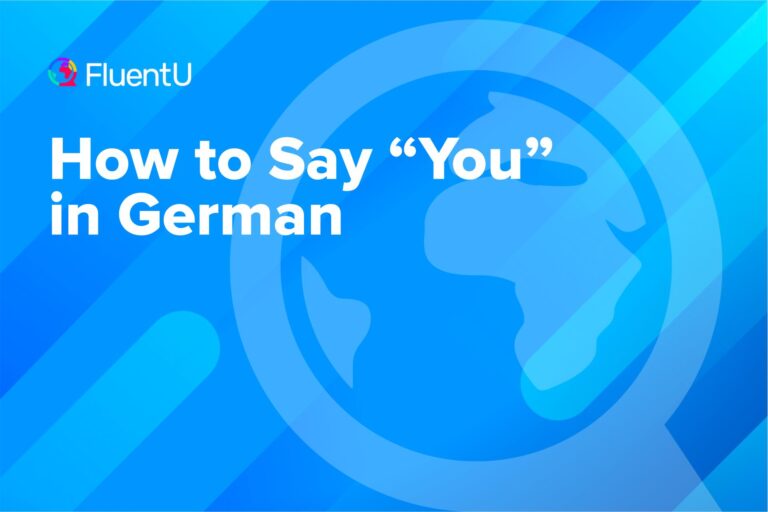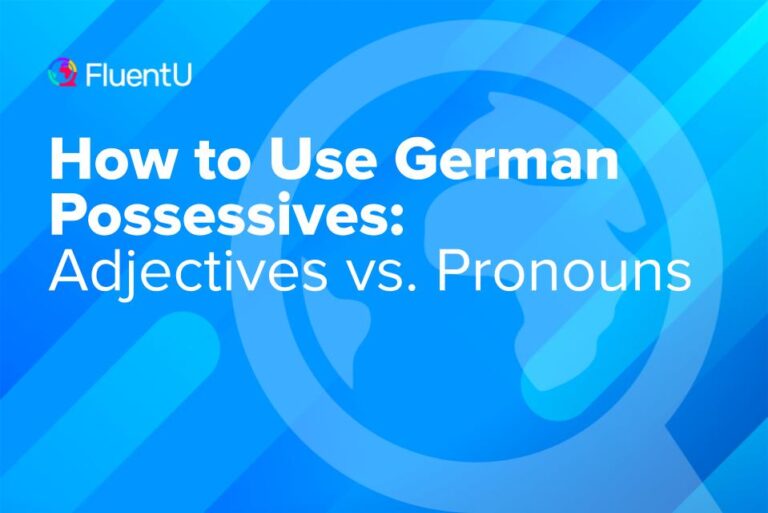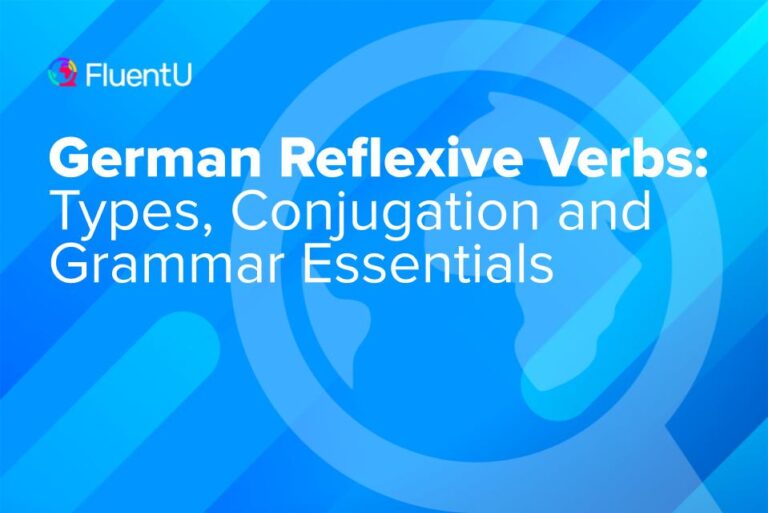
FluentU Language Learning
Spanish
English
French
Chinese
German
Japanese
Russian
Italian
Korean
Portuguese
English for Spanish Speakers
English for Japanese Speakers
English for Russian Speakers
English for Korean Speakers
English for Portuguese Speakers
English for Chinese Speakers
English for Italian Speakers
Educator
Spanish Educator
English Educator
French Educator
FluentU Company Updates
Reviews
Parts of Speech
Sentence Structure
Tenses and Conjugation
Parts of Speech


Dative Pronouns in German
Dative pronouns are everywhere in German—you need them to talk about a lot of everyday topics, like asking for help…
How to Say “You” in German
Unlike English, German has three different ways to say “you.” How do you know which ones to use? It depends…
12 German Modal Particles
Some of the trickiest words to master in German are Modalpartikeln (modal particles). Modal particles usually have other meanings in…
German Prefixes: 3 Types and Usage Notes
German prefixes are divided into three categories: (separable), (inseparable) and dual—which function as both separable and inseparable depending on context.…
How to Use German Possessives: Adjectives vs. Pronouns
(Have you seen my dog?) (This dog is mine!) While conveying the same meaning, what differentiates the two sentences above…
Plural Nouns in German
Can you imagine a world without plurals? We’d never be able to talk about anything unless it was on its…
German Reflexive Verbs: Types, Conjugation and Grammar Essentials
In German, you talk about yourself—or reference other selves—by using reflexive verbs, with the help of a reflexive pronoun. You’ve…
The Guide to German Articles
German articles, which are roughly the equivalent of the and a in English, go alongside nouns and indicate whether you’re…


